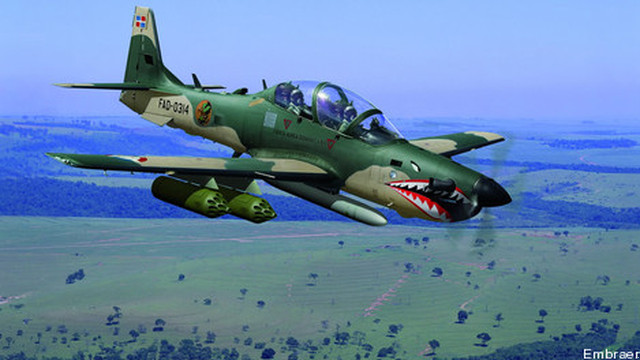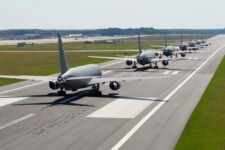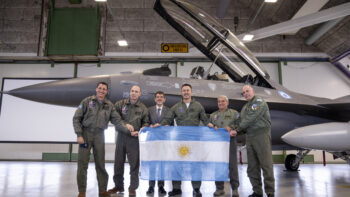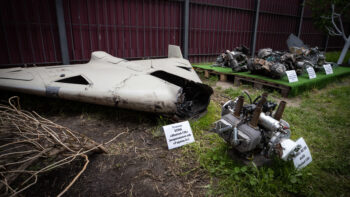
“The acquisitions system is so fundamentally broken,” Sierra Nevada Corporation (SNC) executive Taco Gibert told Breaking Defense this morning. “Everybody loses.”
Yesterday, SNC filed suit in federal court, seeking to undo the Air Force’s cancellation of the Light Air Support contract, originally awarded to SNC’s A-29 Super Tucano. That’s just the latest descent into dysfunction for a relatively modest program — just $355 million for 20 aircraft, intended to be off-the-shelf designs with no R&D required — that has joined the Air Force’s flying fuel tanker, the combat search and rescue helicopter, and the F-22 fighter as case studies in problematic procurement.
For those just tuning in to this painful saga, the last six months have been a mess. In January, after excluding rival Hawker Beechcraft‘s AT-6 Texan as “technically unacceptable,” the Air Force selected the A-29 Super Tucano, offered by SNC, designed by Brazilian firm Embraer, but to be built in the US. Hawker made an unsuccessful protest to the Government Accountability Office and filed suit. In February, the Air Force suddenly cancelled the contract, launched an internal investigation into the award process, and rebooted the competition. Its new request for proposals, issued in May, makes no provision for flying either contending aircraft, instead making the selection purely on paper. Now SNC is filing suit itself.
“We tried everything we could to understand” the Air Force’s decisions, Gilbert told Breaking Defense. Perhaps the breaking point was when SNC requested a formal debrief on why the contract was cancelled, to which it had a right under federal regulation. “We had one scheduled,” Gilbert said. “I flew from Colorado to Ohio [home of the Air Force Materiel Command] to meet with the Air Force… I sat around all day long waiting for the meeting. It kept slipping. We never met.”
Between the Air Force’s failure to answer SNC’s questions and Hawker’s lawsuit, “we feel like we’re boxed in,” Gilbert said. “We don’t do this frivolously,” he said of SNC’s own decision to file suit. “There are some companies that live in the courtroom; we don’t.”
Hawker Beechcraft declined to respond to SNC’s resort to the courts: “We have no comment on the SNC lawsuit,” Hawker Beechcraft spokeswoman Nicole Alexander told Breaking Defense in an email. “The company continues working hard to meet the Air Force’s needs.”
So has the LAS contract spiraled down into mutually assured destruction? Not so, Gilbert insisted: Their suit does not demand that the Air Force stop its procurement process. “We did not ask for an injunction to stop” the new, rebooted competition while the Air Force reconsiders the old, cancelled one, Gilbert said. “We’d anticipate that the process would go forward in parallel.” That’s not exactly efficient, but it’s the last, best chance to get the aircraft to troops in Afghanistan anywhere near on time.
“We’ve already delayed this delivery from April of 2013 out to July of 2014,” said Gilbert. “It goes back down again to the fact that our acquisition system is exceptionally complicated, exceptionally bureaucratic, and yet everyone wants absolute perfection with it. And I don’t know how you get there from here.”
Air Force picks Anduril, General Atomics for next round of CCA work
The two vendors emerged successful from an original pool of five and are expected to carry their drone designs through a prototyping phase that will build and test aircraft.


























